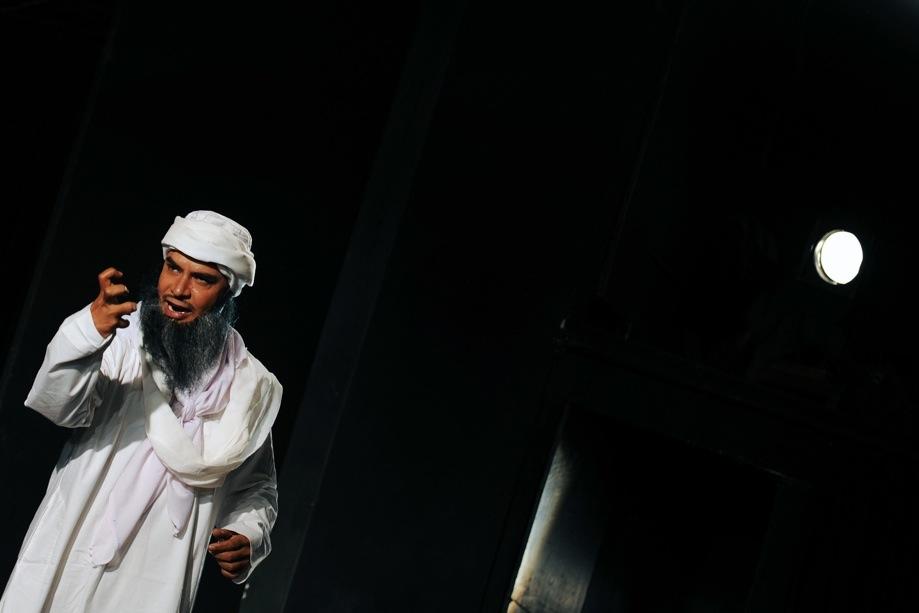Under pressure from the Islamic State, Al Qaeda opens South Asia front
An Indian actor dresses as former Al Qaeda overlord Osama Bin Laden.
Al Qaeda launched a new branch to "wage jihad" in South Asia as it sought Thursday to invigorate its waning Islamist extremist cred after the rise of the rival Islamic State in Iraq and Syria. But experts said it would struggle to gain traction with India's Muslims.
Al Qaeda chief Ayman al-Zawahiri said the new operation would take the fight to Myanmar, Bangladesh and India, which has a large but traditionally moderate Muslim population.
The group once attracted jihadists from around the world to training camps on the Afghan-Pakistan border, but has seen its global influence eclipsed by the Islamic State fighting in Iraq and Syria.
India said it had asked security agencies to study the Zawahiri announcement, which experts said appeared to be a reaction to IS's growing dominance.
"This is just a publicity stunt, it shows their desperation because IS is now showing that they are the real threat in the world right now," said Ajit Kumar Singh, research fellow at the New Delhi-based Institute of Conflict Management.
"It's a fight for supremacy between Al Qaeda and the IS."
In a video statement on Wednesday, Zawahiri singled out Assam, Gujarat and Kashmir — Indian regions with large Muslim populations — along with Bangladesh and Myanmar as territories the new organisation would target.
"This entity was not established today but is the fruit of a blessed effort of more than two years to gather the mujahedeen in the Indian sub-continent into a single entity," he said.
Kashmir, India's only Muslim-majority state, has a long history of violence between separatists and security forces.
But Kashmiri separatists said Al Qaeda had no role to play in their struggle against Indian rule of the disputed territory.
"They (Al-Qaeda) have no scope here. Kashmir is a local political dispute and Al-Qaeda has nothing to do with it," Ayaz Akbar, spokesman for separatist leader Syed Ali Geelani told AFP.
Millions of Muslims fled India for what is now Pakistan in 1947 when the British Empire partitioned the two countries at independence, and tensions persist between those who remain and the Hindu majority.
Indian Muslims have also been the victims of violence led by Hindu extremists. Hundreds died during the 2002 Gujarat riots, at a time when India's now Prime Minister Narendra Modi was chief minister of the state.
Every day, reporters and producers at The World are hard at work bringing you human-centered news from across the globe. But we can’t do it without you. We need your support to ensure we can continue this work for another year.
Make a gift today, and you’ll help us unlock a matching gift of $67,000!
